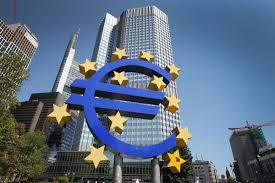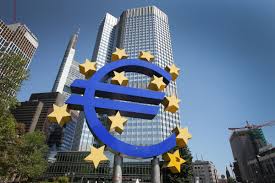
The recent developments in the world economy following the reported slowdown of the Chinese economy and the falling commodity prices has increased downside risks to inflation, Reuters reported the European Central Bank´s chief economist Peter Praet as saying on Tuesday.
The ECB chief economists said this in Mannheim, Germany, where he was scheduled to give a speech on the euro crisis and the role of different economic traditions.
“Developments in the world economy and commodity markets have increased the downside risk in achieving the sustainable inflation path towards 2%; the risk has increased," he told reports, according to Reuters.
“There should be no ambiguity on the willingness and ability of the governing council to act if needed," he added.
Many analysis in the market have been expecting some action from the BoE, ECB and the US Federal Reserve in context of the market situation following the recent volatility in global capital markets. There were also expectations that the banks would take serious note of the possible deflationary impact stemming from weaker growth and currencies in emerging markets, particularly in the People´s Republic of China.
“For the Fed and the ECB, the deflationary wave stemming from China is sure to be a concern. It is likely that they will react at some point," Bank of America-Merrill Lynch said in a research report dated 25 August.
Capital Economics´s Paul Hollingsworth said in a research note e-mailed to clients recently: "although the UK has clearly been caught up in the recent meltdown in global financial markets, we doubt that it will knock the economic recovery off course. That said, it provides the more cautious members of the MPC with another reason to hold fire on voting to raise interest rates."
The experts expect that despite a possible recovery by the markets, the first hike in interest rates will come around Q2 next year.
Meanwhile US bank Morgan Stanley said in its most recent equity strategy note that the ongoing weakness in emerging markets and China will not leave much of a dent in European economy.
The bank believes that the current volatility in markets is likely to be temporary rather than the start of a long and painful bear market and hence it expects that the equities market to gain higher ground in the next three months.
The bank views the European equity market as a stable destination for the investor during this period.
In a note to its clients, the bank noted: “while markets may stay volatile in the short-term, we believe that MSCI Europe will be higher in three months’ time and recommend investors ultimately use this opportunity to add exposure to European equities.”
While advising clients and investors to look at investment opportunities in the European market, Morgan Stanley identified and highlighted 20 companies in the European markets that it feels have the best oversold opportunities. The list includes names like Akzo Nobel, ARM Holdings, BMW, BNP, Centrica, Credit Suisse, Diageo, Engie , IAG, Intesa Sanpaolo, KPN, LafargeHolcim, LVMH, Norsk Hydro and Philips.
(Source: www.digitallook.com)
The ECB chief economists said this in Mannheim, Germany, where he was scheduled to give a speech on the euro crisis and the role of different economic traditions.
“Developments in the world economy and commodity markets have increased the downside risk in achieving the sustainable inflation path towards 2%; the risk has increased," he told reports, according to Reuters.
“There should be no ambiguity on the willingness and ability of the governing council to act if needed," he added.
Many analysis in the market have been expecting some action from the BoE, ECB and the US Federal Reserve in context of the market situation following the recent volatility in global capital markets. There were also expectations that the banks would take serious note of the possible deflationary impact stemming from weaker growth and currencies in emerging markets, particularly in the People´s Republic of China.
“For the Fed and the ECB, the deflationary wave stemming from China is sure to be a concern. It is likely that they will react at some point," Bank of America-Merrill Lynch said in a research report dated 25 August.
Capital Economics´s Paul Hollingsworth said in a research note e-mailed to clients recently: "although the UK has clearly been caught up in the recent meltdown in global financial markets, we doubt that it will knock the economic recovery off course. That said, it provides the more cautious members of the MPC with another reason to hold fire on voting to raise interest rates."
The experts expect that despite a possible recovery by the markets, the first hike in interest rates will come around Q2 next year.
Meanwhile US bank Morgan Stanley said in its most recent equity strategy note that the ongoing weakness in emerging markets and China will not leave much of a dent in European economy.
The bank believes that the current volatility in markets is likely to be temporary rather than the start of a long and painful bear market and hence it expects that the equities market to gain higher ground in the next three months.
The bank views the European equity market as a stable destination for the investor during this period.
In a note to its clients, the bank noted: “while markets may stay volatile in the short-term, we believe that MSCI Europe will be higher in three months’ time and recommend investors ultimately use this opportunity to add exposure to European equities.”
While advising clients and investors to look at investment opportunities in the European market, Morgan Stanley identified and highlighted 20 companies in the European markets that it feels have the best oversold opportunities. The list includes names like Akzo Nobel, ARM Holdings, BMW, BNP, Centrica, Credit Suisse, Diageo, Engie , IAG, Intesa Sanpaolo, KPN, LafargeHolcim, LVMH, Norsk Hydro and Philips.
(Source: www.digitallook.com)





